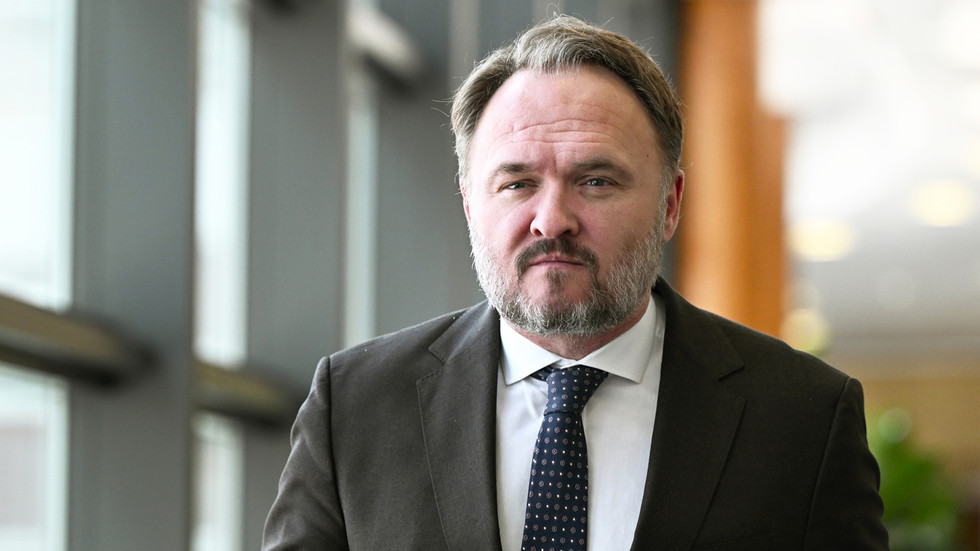Dan Jorgensen, the European Union’s new energy chief, has stated that a revised plan is essential to address the bloc’s ongoing dependence on Russian energy sources. In a recent interview with Politico, Jorgensen emphasized the increasing reliance on Russian liquefied natural gas (LNG), which represented 20% of the EU’s market in 2023. This continued reliance contradicts the EU’s commitments to phase out Russian fuel consumption by 2027, highlighting the urgency for a new strategy as many nations within the union continue to import significant amounts of Russian energy. Jorgensen has committed to developing a detailed roadmap by mid-March that will encompass strategies targeting not only gas but also oil and nuclear fuel, acknowledging the unique challenges faced by EU countries that still depend on Russian nuclear resources.
Following the escalation of the conflict in Ukraine in 2022, the EU made a decisive declaration to reduce its energy dependence on Russia. However, despite efforts to substitute cheaper Russian gas with more expensive supplies from the United States, the bloc’s progress has lagged in recent months. Reports indicate that the EU is on course to import 10% more LNG from Russia in 2024 than it did the previous year. Many EU member states, particularly Hungary and Slovakia, remain staunch supporters of Russian energy imports and have resisted additional sanctions, complicating the EU’s collective efforts to sever ties with Russian energy suppliers. Jorgensen faces the challenge of balancing these divergent interests within the council while pushing for a cohesive energy strategy.
The impending expiration of a long-term gas transit agreement between Russia and Ukraine on December 31 further underscores the urgency of Jorgensen’s plans. Currently, the EU still derives approximately 5% of its gas from Russia via Ukraine’s transit network. The end of this arrangement may momentarily disrupt supplies, placing additional pressure on EU members that continue to rely on these imports. To compound the situation, warnings from financial news sources suggest a looming energy crisis in Western and Central Europe. This turmoil is attributed to recent US sanctions against Gazprombank, the Russian financial institution managing energy transactions, leading to concerns about dwindling gas reserves and raised alarm regarding supply cuts from Russia.
As Jorgensen develops this new energy strategy, he will need to address the balancing act between pushing member states to adapt to new energy sources and managing the significant political pressure from nations that remain opposed to drastically changing their energy import strategies. The historical reliance on Russian energy has proven a double-edged sword; while it has supplied the bloc with affordable energy, it has simultaneously fostered geopolitical vulnerabilities, particularly highlighted by the ongoing war in Ukraine. Any credible plan must therefore also encompass political and economic support for transitional energy policies that can appease the discontented member states while also ensuring the EU’s long-term energy independence.
Furthermore, the roadmap proposed by Jorgensen must not only focus on immediate reductions but also emphasize sustainable and renewable energy initiatives as alternatives to gas, oil, and nuclear power. The EU has made commitments toward achieving net-zero emissions by 2050, and the transition away from Russian energy sources presents a vital opportunity to realign these policies. The development of domestic renewable energy sources, energy efficiency measures, and infrastructure investment strategies could be critical components of Jorgensen’s new plan. By framing the strategy as not just a ban on Russian energy, but as an opportunity to modernize the entire EU energy landscape, Jorgensen may garner broader support among member states for this transition.
In conclusion, Dan Jorgensen’s commitment to crafting a comprehensive energy strategy is pivotal as the EU grapples with the complex challenge of reducing its reliance on Russian energy. His proposal acknowledges the multifaceted nature of the problem, addressing gas, oil, and nuclear reliance while recognizing the political sensitivities within the union. As the geopolitical landscape continues to evolve with the war in Ukraine, the pressures on energy security demand that the EU undertake decisive action. A balanced approach that combines immediate solutions and long-term sustainability will be essential for creating a stable energy future for Europe and ensuring that such dependence on a single supplier is minimized in the future.

